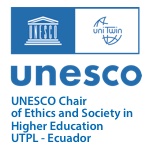Has faith killed reason? An approach from Reformed theology
Abstract
This essay has as its object the contributions of Reformed Christian theology for overcoming the (apparent) duality between faith and reason. This research is based on studies about the dialogue between the Reformed Christian tradition and medieval and modern Christian philosophy with the aim of proposing theoretically viable responses to postmodern or hypermodern problems, such as the link between the religious manifestations of the human being and their capacities. rational.
Downloads
References
Dooyeweerd, Herman (1984). A New Critique of Theoretical Thought. Ontario: Paideia Press.
Dooyeweerd, Herman (1980). In the Twilight of Western Thought: Studies in the Pretended Autonomy of Philosophical Thought. Nutley: The Craig Press.
Frame, John (1994). Apologetics to the Glory of God: An Introduction. Phillipsburg, NJ: P&R Publishing.
Frame, John (1987). The Doctrine of the Knowledge of God. Phillipsburg, NJ: P&R Publishing.
Finnis, John (1980). Natural Law and Natural Rights. Oxford: Oxford University Press.
George, Robert P. (1992). Natural Law Theory. Contemporary Essays. Oxford: Oxford University Press.
Heschel, Abraham J. (1966). Who Is Man? Palo Alto, CA: Stanford University Press.
Hiebert, Paul G. (2008). Transforming Worldviews: An Anthropological Understanding of How People Change. Grand Rapids, MI: Baker Academic.
Leithart, Peter (2000). A House for My Name. Moscow, ID: Canon Press.
MacIntyre, Alasdair (2007). After Virtue: A Study in Moral Theory. 3rd ed. Notre Dame, IN: University of Notre Dame Press.
Plantinga, Alvin (2015). Knowledge and Christian Belief. Grand Rapids, MI: William B. Eerdmans Publishing Co.
Schaeffer, Francis A. (2014). Escape from Reason. Downers Grove, IL: InterVarsity Press.
Van Til, Cornelius (1961). Christian Theory of Knowledge. Phillipsburg, NJ: P&R Publishing.
Copyright (c) 2021 ©️ Analysis

This work is licensed under a Creative Commons Attribution-NonCommercial-NoDerivatives 4.0 International License.








